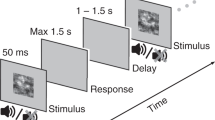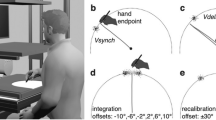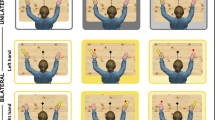Abstract
J. G. PRATT et al.1 recently reported that a subject, Pavel Stepanek, was able to demonstrate extra-sensory perception (ESP) by making a particular verbal response to a concealed object in conditions where, according to a referee's report, “this object could not have been recognized by the use of any known sensory mechanism”.
This is a preview of subscription content, access via your institution
Access options
Subscribe to this journal
Receive 51 print issues and online access
$199.00 per year
only $3.90 per issue
Buy this article
- Purchase on Springer Link
- Instant access to full article PDF
Prices may be subject to local taxes which are calculated during checkout
Similar content being viewed by others

References
Pratt, J. G., Stevenson, I., Roll, W. G., Blom, J. G., Meinsma, G. L., Keil, H. H. J., and Jacobson, N., Nature, 220, 89 (1968).
Beloff, J., New Scientist, 40, 76 (1968).
Soal, S. G., CIBA Foundation Symposium, 131 (Churchill, London, 1958).
Hansel, C. E. M., ESP—a Scientific Evaluation (Scribners, NY, 1966).
Author information
Authors and Affiliations
Rights and permissions
About this article
Cite this article
HANSEL, C. ESP: Deficiencies of Experimental Method. Nature 221, 1171–1172 (1969). https://doi.org/10.1038/2211171a0
Received:
Issue Date:
DOI: https://doi.org/10.1038/2211171a0
This article is cited by
-
Identification of Concealed Randomized Objects
Nature (1970)
Comments
By submitting a comment you agree to abide by our Terms and Community Guidelines. If you find something abusive or that does not comply with our terms or guidelines please flag it as inappropriate.


